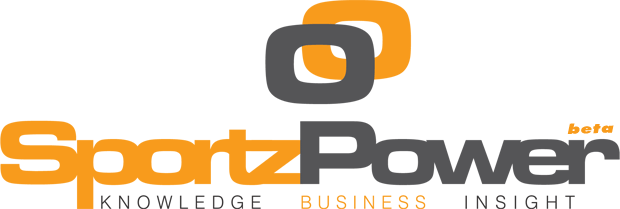
Introduction
The Olympic Movement and the Olympic Games are meant to serve as a cohesive platform where athletes from diverse backgrounds from across the world exhibit their sporting calibre. The mandate of the Olympic Movement is inclusive, and actively encourages the participation and representation of different social and cultural groups in the Olympic Games. These values and objectives of the Olympic Movement are embedded in the principal document concerned with its administration, the Olympic Charter (“Charter”). The Charter is a comprehensive document that enumerates the responsibilities of each arm of the Olympic Movement, the relationship between each constituent body and the process of organising the Olympic Games.
Fundamental Principles of the Olympic Movement
The preamble of the Olympic Charter sets out the fundamental principles and objectives of the Olympic Movement. In broad terms, the Olympic Movement seeks to blend sport with culture and education, and enable harmonious human development through sport. The Olympic Movement also seeks to employ sport as a means of inculcating values of fair- play and solidarity, and ensures that every person is afforded the opportunity to practice and pursue sporting activities without discrimination on the grounds of race, religion, gender, politics or other means. In addition to the ideals of the Olympic Movement, the preamble of the Charter sets out the fundamental principles concerning the governance of the sports organisation. The fundamental principles require the sports organisation be autonomous, having freedom to determine its constitution and undertake elections without outside influence, have the power to lay down rules for sporting activities, and have good governance inform its operations.
Governance of the Olympic Movement
In order to govern the Olympic Games and broaden their reach in line with its objective, the Charter considers the Olympic Movement to be comprised of three organisational parts: the International Olympic Committee (“IOC”); the International Sports Federations (“ISFs”); and the National Olympic Committees (“NOCs”).
In terms of the governance of the Olympic Movement, the IOC is meant to operate as the nodal organisation for the administration of the Olympic Movement, with ISFs assisting the organisation of sporting activities at a trans-national regional level, and the NOCs assisting in the development of sporting activities in each national territory and enabling the participation of athletes from that national territory in the Olympic Games. Within this broad scheme, the Charter renders the IOC responsible for the overseeing the Olympic Movement and ensuring that the ISFs and NOCs pursue the objectives of the Olympic Movement. This role requires the IOC to recognise and supervise the constitution and operation of NOCs, to ensure compliance with the fundamental principles of the Olympic Movement.
Supervisory Role of the IOC
As the nodal organisation responsible for the organisation of the Olympic Games, the Charter requires the IOC to encourage and support good governance and ethical conduct of sports, to fortify the spirit and unity of the Olympic Movement, preserve its autonomy and oppose any political or commercial abuse of sport and athletes. Furthermore, the IOC is also responsible for formally recognising NOCs and ensuring that they comply with the Olympic Charter in the conduct of their affairs. The terms and consequences of recognition of each NOC is as determined by the IOC Executive Board, and the recognition of an NOC enables athletes affiliated to that NOC to participate and compete in the Olympic Games. The IOC’s supervisory function in relation to the NOCs arises out of its responsibility to ensure that the principles of good governance are embedded in the conduct of sports, and to act against instances that compromise the ideals of the Olympic Movement or otherwise degrade the Olympic Movement.
The IOC is composed of three principal bodies, the Session, the IOC Executive Board and the President. The Session is the supreme body, which comprises of all the members of the IOC (representatives of the constituents of the Olympic Movement, that is, the NOCs and ISFs, and active athletes). Among its other responsibilities, the IOC is empowered to amend the Charter, elect the executive members of the IOC and IOC Executive Board, and choose the host city for the Olympic Games. The President is elected by the Session and acts as the representative of the IOC in the conduct of its affairs. The IOC principally acts through the IOC Executive Board, with the assistance of other advisory bodies constituted by the IOC, such as the IOC Ethics Commission and the IOC Nominations Committee. With regard to the sanctioning ability, the Charter empowers the IOC Executive Board to suspend an NOC or withdraw its provisional recognition and permits the Session to withdraw the errant NOC’s full recognition.
In the exercise of its supervisory powers, the IOC has in the past acted against conduct undermining the Olympic Movement, such as the banning of the Afghanistan NOC in 1999 for institutional discrimination against women athletes and the banning of the South African NOC in 1964 for its affirmation of racial segregation. With respect to the India, the IOC, through its Ethics Committee, has recently intervened in the operations of the Indian Olympic Association (“IOA”), the Indian NOC, by recommending that Mr. Suresh Kalmadi, Mr. Lalit Bhanot and Mr. V.K. Verma (“Officials”) be suspended and barred from contesting the elections of the IOA as their pending criminal trial and detention raised concerns on their integrity, and their continued association with the IOA could tarnish the reputation of the Olympic Movement.
Role of the IOC Ethics Commission
The IOC Ethics Commission was established by the Charter, to formulate and update ethical standards and to monitor compliance with the ethical principles and standards for the constituents of the Olympic Movement, such as the IOC and the NOCs. These ethical principles and standards form a part of the Code of Ethics produced by the IOC Ethics Commission. The constituents of the Olympic Movement, that is, the IOC, ISFs and NOCs, along with the athletes must adhere to these standards in order to participate in the Olympic Movement.
The Code of Ethics broadly addresses concerns of maintaining the dignity and plurality of the individual in their participation in the Olympic Movement, maintaining the integrity of the Olympic Movement and its institutions, and ensuring that the principles of good governance are adhered to by the Olympic Movement. In relation to the principles concerned with integrity, the Code of Ethics requires that participants in the Olympic Movement, such as NOCs, and their representatives do not act in such manner as to tarnish the reputation of the Olympic Movement, including directly or indirectly accepting any form of remuneration, commission, or any concealed benefit or service concerned with the organisation of the Olympic Games. The broad formulation of the basic ethical principles enables the IOC Ethics Committee to closely monitor the activities of NOCs and their representatives, and recommend sanctions in case it believes that the fundamental values of the Olympic Movement are being undermined by an NOC’s conduct.
In the Indian context, the IOC Ethics Committee recommended the suspension of the Officials on the grounds that the concerned actions were likely to tarnish the reputation of the Olympic Movement.
IOC Ethics Committee’s Recommendations to the IOA
The IOC Ethics Committee’s deliberation and suspension of the Officials arose out of a query sent to the IOC President by the IOA’s current vice-president, Mr. Jagdish Tytler. The query required the IOC President to clarify the eligibility of the Officials to contest the elections of the IOA. This query was forwarded by the IOC President to the IOC Ethics Committee for its deliberation, and the IOC Committee responded by recommending that the IOA suspend the Officials due to the subsistence of criminal proceedings concerning corruption in the organisation of the 2010 Commonwealth Games in Delhi, and such allegations raised concerns of the integrity of the Officials. The IOC Ethics Committee also added that the seriousness of the allegations ought to be gauged from the detention of the Officials, during the pendency of the current criminal investigations. Lastly, the IOC Ethics Committee opined that the subsistence of the current allegations renders the participation of the Officials in the Olympic Movement, through the IOA, problematic, as it is likely to tarnish and disparage the Olympic Movement and its ideals. Thus, it recommended their suspension and consequent disqualification from contesting the IOA elections as a provisional measure, adding that appropriate sanctions would be applied pursuant to the findings of the criminal proceedings.
Conclusion
The IOC’s broad mandate to promote and protect the Olympic Movement enables it to actively supervise and monitor the activities of its members as well as subordinate organisations such as the ISFs and NOCs. The Charter enables both the IOC and the IOC Ethics Committee to examine perceived defaults in compliance with the ethical standards of the Olympic Movement, and encourages both organisations to assist each other in monitoring the conduct of constituents of the Olympic Movement. However, while either body may examine and investigate charges, the Charter constitutes the IOC as the overarching organisation by exclusively placing the sanctioning authority with the IOC. Such exclusivity ensures that the IOC operates as a unified organisation. Further, the Session, as its principle organ, involves all the IOC members in its deliberations and ensures transparent functioning in the course of pursuing sanctions against errant NOCs or other subordinate organisations.
- Log in to post comments

